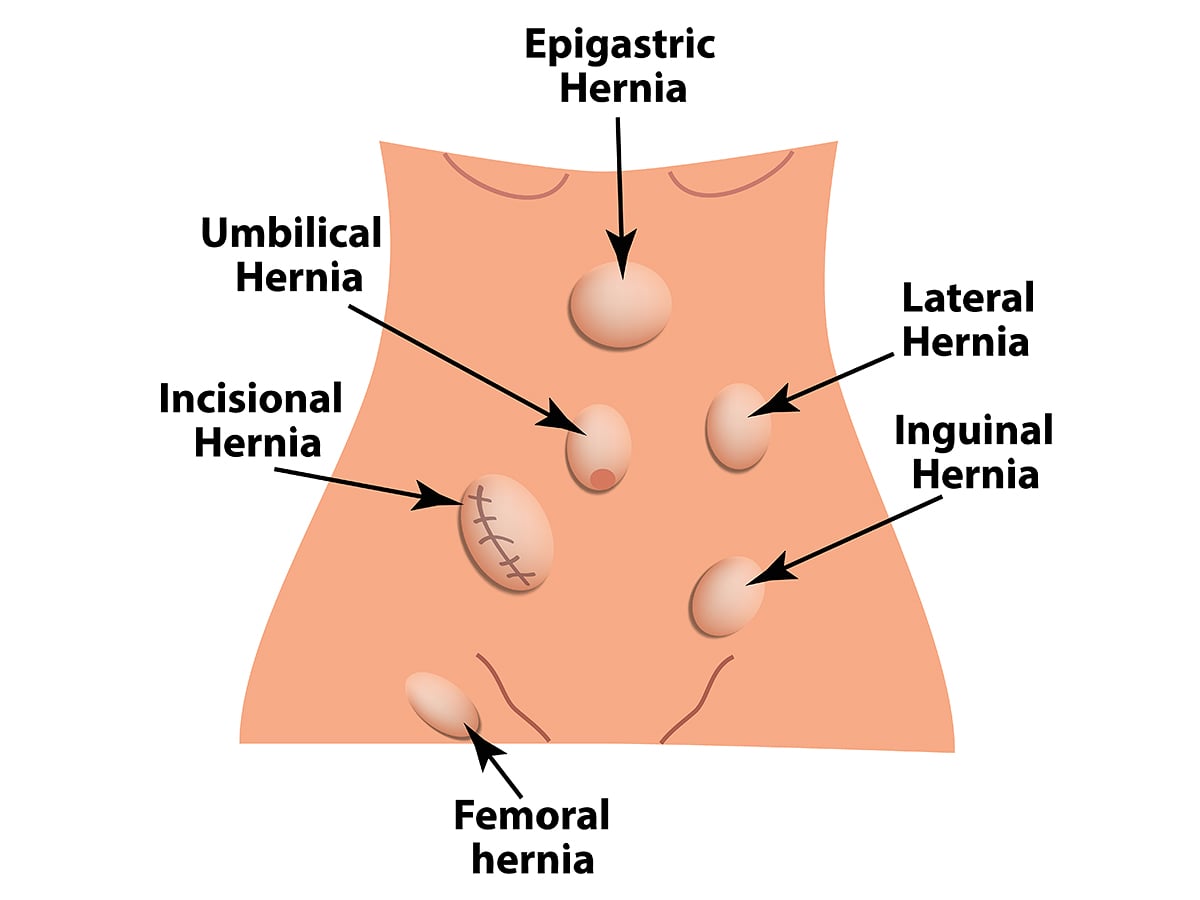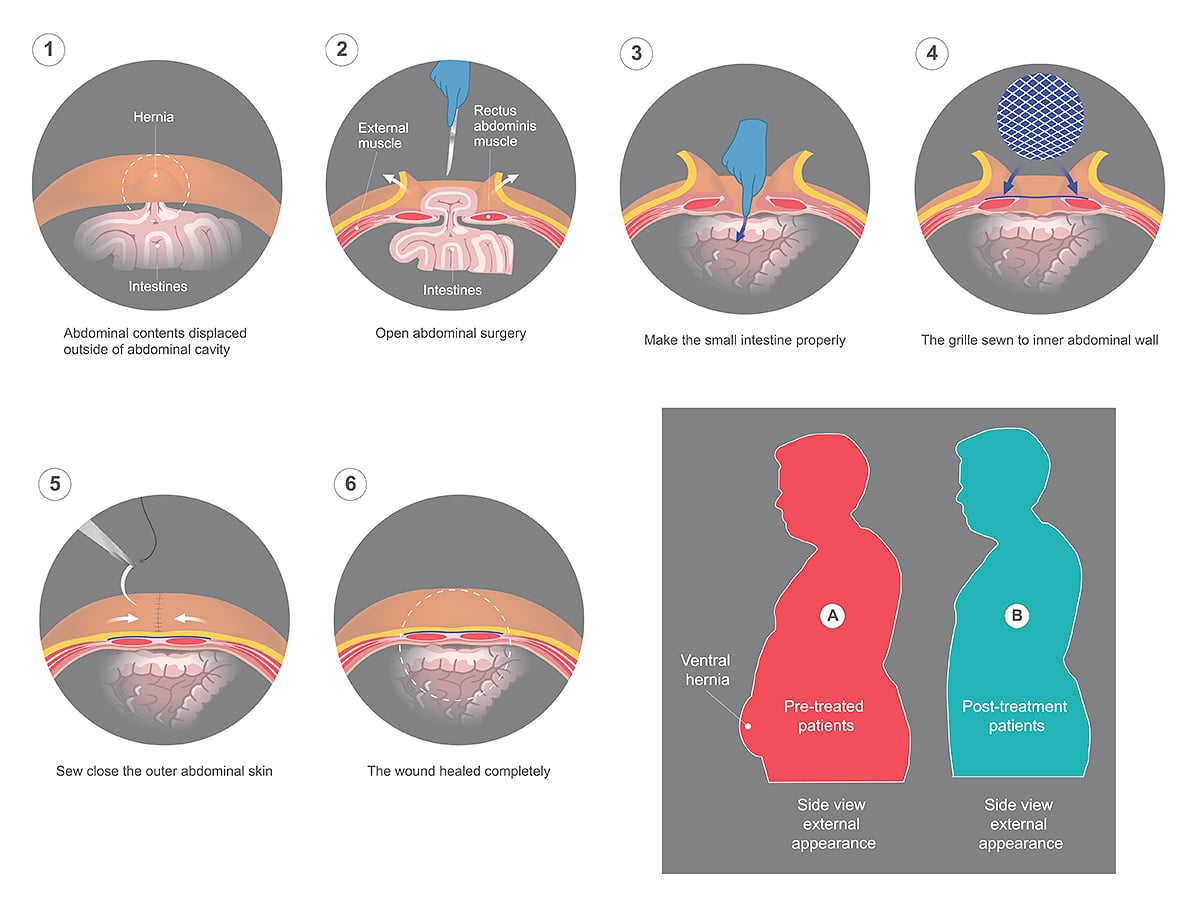Introduction
Incisional and Ventral Hernia Repair are similar surgical procedures to correct a hernia (a bulging of an organ or tissue through an abnormal opening).
In the case of an incisional hernia – repair of a hernia related to an incompletely-healed surgical wound (e.g.: abdominal exploratory surgery). In the case of a ventral hernia – repairing a bulging of tissues through an opening in the muscles on the abdomen.
Indications
- Large hernia with or without symptoms.
- Recurrent incisional hernia.
- Small bowel obstruction incarcerated or strangulated hernia.
- Repair for cosmetic reasons.
Preoperative Instructions
- Smoking cessation 6 weeks before operation.
- Reduce 10% of total body weight in obese patients.
- Treat infections.
- Good exercise.
Procedure
Open Repair
A surgeon makes a cut next to the hernia or on it, pushes tissue back into place and then sews in a mesh, which serves as a reinforcing patch, to keep it in place. This is considered safe and reliable, and mesh placement has been shown to reduce risk of hernia recurrence.
These are a few concerns about open repair:
- Longer stay in the hospital after surgery.
- Greater amount of pain.
- Medium to large scar.
Laparoscopic repair
A surgeon makes multiple small openings and fixes your hernia with mesh using guidance with a small camera inside your body to direct the surgery.
The benefits of laparoscopic repair include:
- Much smaller cut site, which lowers chance of infection.
- Reduced postoperative pain.
- Reduced hospital stays – generally able to leave day of or day after procedure.
- Absence of a large scar.
- Faster overall recovery time.
Postoperative Instructions
- Walking in encouraged as soon as possible to enhance recovery.
- Pain management.
- Avoid heavy weight pushing, pulling and lifting for a few weeks.
- Recurrent hernias can be prevented by losing weight if you are overweight, avoiding constipation, using correct lifting techniques and exercising regularly.
Risks and Complications
- Pain due to nerve injury.
- Infection at the incision site or mesh.
- Blood or fluid accumulation.
- Urinary retention.
- Recurrence of the hernia.






